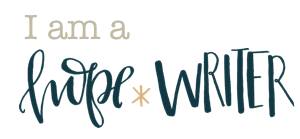“Your life will never be any different unless
you’re curious about your own story.” – Blaine Hogan
In the last post, we covered the basics of Memory Reconsolidation and how the brain heals itself. A helpful follow-up question is… do we have to go digging around in old memories in order for our life today to be healthy?
The short answer: yes
What is “Story” Anyway?
Your story is made up of snapshots from your life, from your first day of preschool to your wedding day to the moment you got the phone call about your brother’s death.
These snapshots are actually experiences that become memories.
As life goes on, these snapshots get strung together and we unknowingly weave narratives about ourselves, life, and God. Narratives are simply conclusions we come to based on experiences. Often unconscious, narratives drive our lives.
“I can’t hold down a job.”
“I’ll never find love.”
“In order to succeed, I have to work 60 hours per week.”
These narratives determine the direction of our lives, from never pursuing meaningful relationships to working so hard that we don’t have time for our family. This feeds back into our story of being alone or having a family that falls apart.
If we don’t acknowledge our story, we stay stuck.
Stuck in our problems.
Stuck in people-pleasing.
Stuck in cycles.
Stuck in a life that will never change.
The Path to Healing: Making Sense of Your Story
The degree to which we understand our story determines our ability to get unstuck and begin co-authoring new stories. Understanding our story inevitably means looking back at our life, our childhood, our memories, and our past.
The simple act of remembering is a powerful tool because of how it connects to memory reconsolidation. Through sharing a story or recounting a memory of something significant that happened, we can unlock the ability to interpret the event differently and eventually change the narratives that control our lives.
This work is done best with an attuned listener sitting next to us. Sharing our stories in the presence of someone else who can offer kindness and care is one of the primary ways we begin to heal. Part of this is because of memory reconsolidation – when we are met with kindness and compassion as we share hard parts of our stories, our brain instantly begins to reinterpret events and narratives, allowing for new and healing perspectives.
Storywork is Holy Work
“Storywork” is the simple practice of paying attention to and sharing our story. When we take the time to honor where we have been and slow enough down to examine the effect that all those “snapshots” have had on our lives, we begin to uncover themes, plot twists, and a cast of characters that helped form and shape who we are today.
We also have the chance to examine the role we play in our own story. Are we the villain? The bad kid who just never got anything right? Are we the victim? The one who has always had life stacked against her? Are we the center of the universe? Or are we a beloved child of God who is simply doing her best?
The roles we play in our stories and narratives say a lot about how we view life. Once you’re no longer the villain or the victim or the workaholic, life gets a little easier to navigate.
As you tend to your story, you begin to see a cohesive storyline take shape. Gone are the “snapshots” of memories, and in their place is a coherent narrative that makes sense and is full of gifts and treasures to help guide you forward. Harm can be healed and wholeness is restored.
Because tending to your story gives you a greater sense of meaning because you know where you have come from and where you are going, you have a chance to shed old narratives, limiting beliefs, and old roles that no longer serve you, and you get to chart a new path forward.
Resources for Exploring Your Story
Understanding your story is at the core of any good therapeutic journey but it isn’t found in therapy alone. This is a journey you can take with a friend, your small group at church, or with a group of total strangers who are also interested in uncovering their story in a group setting. If you’re interested in learning more about your story and what you might discover, in addition to pursuing therapy for personal growth, here are a few resources to get you started:
To be Told (workbook), Dan Allender
The Voices We Carry, J.S. Park
Write Your Story, Allison Fallon
Tell Me a Story, Daniel Taylor
Reclaiming Your Story, Merle Jordan
